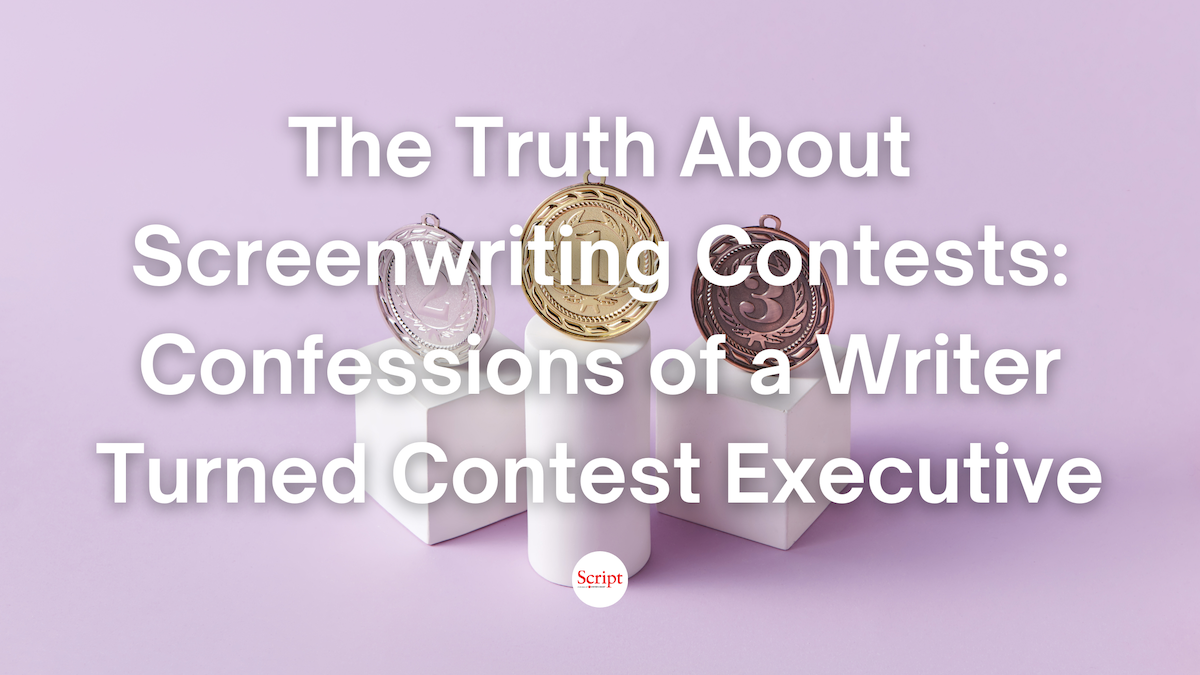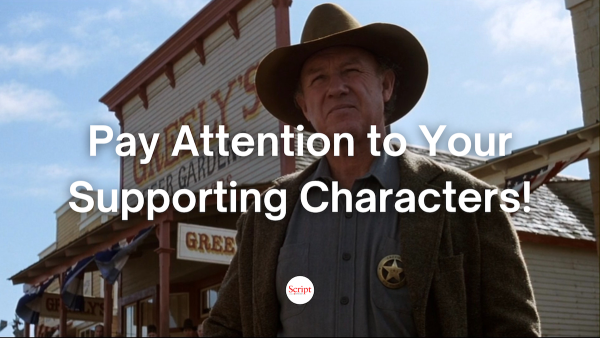BALLS OF STEEL™: Script to Novel – 5 Steps to Adapting Backwards
Have you considered adapting a script to novel? Jeanne Veillette Bowerman challenges screenwriters to take on the challenge by turning their script into a novel.
November 1st marks the launch of National Novel Writing Month, a personal challenge to write a 50,000-word novel in 30 days.
Why am I talking about writing a novel when this is a screenwriting site? Because I am taking the challenge of NaNoWriMo myself, and I urge you to join me by either starting a new project or taking one of your scripts and turn it into a novel.
Hollywood loves adaptations. You already have a story, so take the next step and turn it into a novel to increase your odds of success. NaNoWriMo is the perfect opportunity to give becoming a novelist a shot since your script can serve as a fantastic outline.
If you don’t have a script that would work as a novel, then use this 30 days to get a first draft of a new screenplay done. Challenge yourself to write every day. After all, it takes 28 days to develop a habit. After the 30 days are over, you’ll have a new routine that promises to get more scripts written in the coming year.
Anyone who reads my column regularly knows I’m no wimp when it comes to a challenge. Just the mere thought of it makes my skin tingle with delight. I’m a competitive bitch when I need to be, even more so when the person I’m challenging is myself.
Instead of telling you all about the values of doing NaNoWriMo, including simply getting in the practice of writing every day, you can read a piece I wrote three years ago, after losing my NaNoWriMo virginity, about the 10 lessons I learned from NaNoWriMo.
How do I turn my screenplay into a novel?
I polled some of my screenwriter friends who have done just that. Here are their top five tips:
1. The hard part is done. You already have a script with structure and characters. That’s one hell of a detailed outline for a novel.
2. Decide on a Point of View. As screenwriters, we always write in the third person, but if you’re writing a novel, you can decide whose point of view you want to tell it in… the antagonist, the protagonist, the third person or the first person. You can even use a different character’s point of view for each chapter. Your story could be more interesting told from a specific character’s perspective.
3. Start with a skeleton. Take your script and write it out into the prose of a novel, one scene at a time. Don’t worry about descriptive prose or crawling into the characters’ heads yet. Just get the basic story down into novel form. The average novel is 80,000 word count (but can be more or less, depending on the genre). Once you get the skeleton of your story down, you’ll have a better idea of how far off you are from the mark.
4. Beef it up. Now is the time for fun! The benefit we have as screenwriters is our natural ability to write visually. Take off your screenwriting shackles and let loose with the flowery prose and with crawling inside your characters’ heads, telling their thoughts and feelings… things we can never do as screenwriters! At first, it won’t seem natural, but in time, I promise, you’ll start enjoying the freedom to explore your story mentally rather than visually.
5. Fill in the holes. Screenwriters are trained to write lean and mean. Go back and find those darlings you had to cut in order to get your script to the 110-page sweet spot. Oh yeah, you can add those suckers back in! You can even add other subplots and characters; though I’d still be sure any subplot you add relates to the theme of your story.
Now, I’m not suggesting you write the next War and Peace. Quite the opposite. A lot of successful, self-published ebooks are written efficiently in order to make the books a quick read. The readers of today often want to read a book in one sitting. As a screenwriter, you’re the perfect writer to take advantage of that market.
Bottom-line: It’s hard to get a script produced, especially in this economy. But as a novelist, you CAN get your work in the public, even by self-publishing, and possibly get interest in your script from the exposure.
You really have nothing to lose. In fact, you might even discover you’re good at being a novelist and branch out into a new form of writing.
As I always say, writers write. My new career plan is to write both novels and scripts. I want to move people with my words, and I can’t do that if they’re sitting on my hard drive waiting to get produced.
But how can I find the time to “win” this challenge?
The disclaimer: Most of us work full-time jobs, and it’s hard to imagine how we’ll find the time to write 50,000 words in 30 days (it breaks down to 1,667 words per day). My plan is to simply write something… anything… every single day, even if at the end of the 30 days I only have 20,000 words, that’s 20,000 more than I have today. I’d rather have 20,000 quality words than 50,000 crappy ones anyway.
Again, check out the post I wrote about the lessons I learned in NaNoWriMo. In it, I describe a word-churning program called Write or Die. You enter the desired word count for that writing session and the time you want to write it in. While you’re writing, the program will start honking at you if you slow down. It’s a fun way to keep the pressure on.
Consider joining me. If you do, find me on the NaNoWriMo site, username jeannevb, and add me as a buddy. We can keep track of each other’s progress, send messages of encouragement, and build a whole new community of writers to support our efforts. I made amazing friends when I took on the challenge three years ago, and I know I will only widen that circle this year.
Put your NaNoWriMo usernames in the comments below to connect!
~~~~~~~~~~~~~~~~~~~~~~~~~~~
- Adapting Sideways: How to Turn Your Screenplay into a Published Novel On Demand Webinar
- Script to Novel: Double Your Odds of a Sale On Demand Webinar
- More Balls of Steel articles by Jeanne Veillette Bowerman
- Legally Speaking, It Depends: Ins and Outs of Novel Adaptation
Learn How to Turn a Book Into a Movie with our FREE Download on Tips for Acquiring Book Rights and Writing an Adaptation
Jeanne Veillette Bowerman is a Senior Executive at Pipeline Media Group and Book Pipeline, Editor-in-Chief of Pipeline Artists, Director of Symposium—a year-round conference in the arts, co-host "Reckless Creatives" podcast, partner at Fringe Press, former Editor-in-Chief of Script magazine and a former Senior Editor at Writer's Digest. Recognized as one of the "Top 10 Most Influential Screenwriting Bloggers," her "Balls of Steel" column was selected as recommended reading by Universal Writers Program. A compilation of her articles is now available at The Writers Store—Balls of Steel: The Screenwriter's Mindset. She is also Co-Founder and moderator of X's weekly screenwriters’ chat, #Scriptchat, and wrote the narrative adaptation of the Pulitzer Prize-winning book, Slavery by Another Name, with its author, Douglas A. Blackmon, former senior national correspondent of The Wall Street Journal. More information can be found on her website. X: @jeannevb | IG/Threads: @jeannevb_ | BlueSky: @jeannevb.bsky.social







